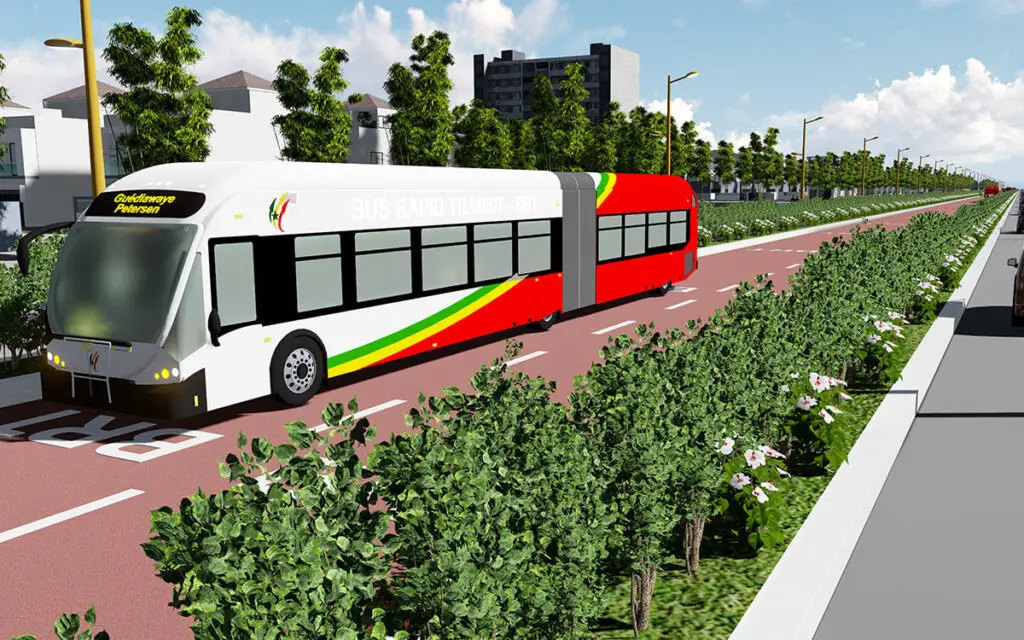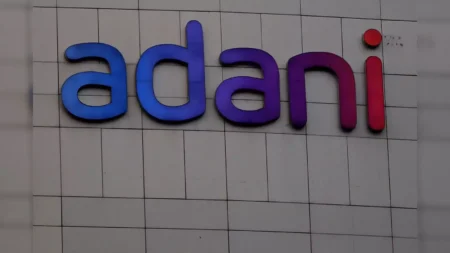- Europe has announced plans to invest $340 million in upgrading Dakar’s Public Transport Network in Senegal.
- The financial support will be focused on the restructuring of the Dakar bus network.
- It covers 14 priority lines and includes the acquisition of 380 buses.
Europe has announced plans to invest $340 million in upgrading Dakar’s Public Transport Network in Senegal aimed at helping the country tackle environmental challenges by providing cleaner, safe and affordable public transport.
The project dubbed Global Gateway will be conducted by the European Investment Bank (EIB) with the support of the European Commission, the French Development Agency (AFD) and the KfW development bank (Germany) on behalf of the German federal ministry for economic cooperation and development.
The financial support will be focused on the restructuring of the Dakar bus network. It covers 14 priority lines and includes the acquisition of 380 buses, the construction of two depots, the installation of ticketing and network management and control systems, as well as the development of 30 km of roads. The investment will also bring institutional support to CETUD, the Dakar public transport authority.
“The Senegalese government is very pleased to further partner with EIB, the European Commission, AFD and KfW in such important project for Dakar and the country.” said Oulimata Sarr, Minister of Economy, Planning and Cooperation Senegal.
The minister added: “The public transport network project in Dakar contributes to Senegal’s national development plan spanning 2019-2023 and its first strategic axis “structural transformation of the economy”. The transport sector has a key role to accelerate the economic and social development of the country. And with this project, it is a substantial step forward.”
The project was announced at the first EIB Forum in Luxembourg by Sarr, Ambroise Fayolle, EIB Vice-president, Koen Doens, Director General at the European Commission’s International Partnerships Department, Papa Amadou Sarr, Executive Director of AFD, André Ahlert, Director Strategy and Financial Instruments of KfW and Markus Berndt, acting Managing Director of EIB Global.
“Urban mobility is of the essence for Africa. It is why I am very happy to announce today this new EIB financing in the context of the EU’s Global Gateway initiative, welcoming the opportunity to further partner with CETUD following the BRT project that I have visited last June. EIB is very motivated to help make Dakar more sustainable, liveable and inclusive especially for youth, women and low-income residents. As the EU climate bank, our role is to support Senegal to meet its international climate commitments under the Paris Agreement and reduce its emissions in public transport.” said Ambroise Fayolle, EIB Vice-President.
He added: “With EIB Global, our new branch dedicated to our action outside the EU, we are very proud to support with Team Europe, the Senegalese government on national development priorities.”
During the signing ceremony, the partners underlined the importance of improving the urban transport in Senegal, through a project able to improve concretely the quality and attractiveness of the public transport service offer in the Dakar Region by restructuring the bus lines feeding the key capacity axes of the Regional Express Train (TER) and Bus Rapid Transit (BRT).
EU Commissioner for International Partnerships, Jutta Urpilainen, said: “This project is another tangible demonstration of Global Gateway in action. It will benefit the people of Dakar directly, as it will improve the quality of affordable public transport, reduce air pollution, and make the city more liveable. Moreover, it contributes to Senegal’s green transition and for the good of environment and climate. I am proud that Team Europe can enable this transformative project, which complements our important partner Senegal’s national development plan. Also, the project is a prime example of what we can achieve by mobilising the EFSD+ guarantee for EIB sovereign lending.”
The project is expected to significantly increase modern public transport level of service and ridership in the city of Dakar, thus contributing to improving the quality of life of citizens, the development of sustainable transport and climate change mitigation. The project will moreover increase access to economic and job opportunities as well as to public services such as education and health. It will reduce pollution while reinforcing road safety in Dakar.
André Ahlert, KfW Development Bank, Director Strategy and Financial Instruments: “KfW is very happy to start its engagement in the Senegalese urban transport sector with this important project. Our partners in Senegal may expect us to work together in a well-coordinated manner, proving that enhanced cooperation between the European institutions is more than just a word.”
Aligned with Senegal’s international climate objectives and designed under the Team Europe Initiative “Green Economy” in Senegal, the project is the result of a longstanding partnership between the Republic of Senegal and all the partners of this agreement, recognising the key role of African cities in reducing pollution and fostering economic opportunities for the populations. The project is part of the Global Gateway Africa – Europe Investment Package and part of the Dakar-Abidjan strategic economic corridor.
“After supporting the Regional Express Train, which transports today over 85 000 passengers per day, AFD is part of this carry forward ambitious project which will improve the daily life of citizens in Dakar. Less congestion, less pollution, better access to economic opportunities are the main drivers of this joint effort from the Government of Senegal and Team Europe.” said Papa Amadou Sarr, Executive Director of AFD.











